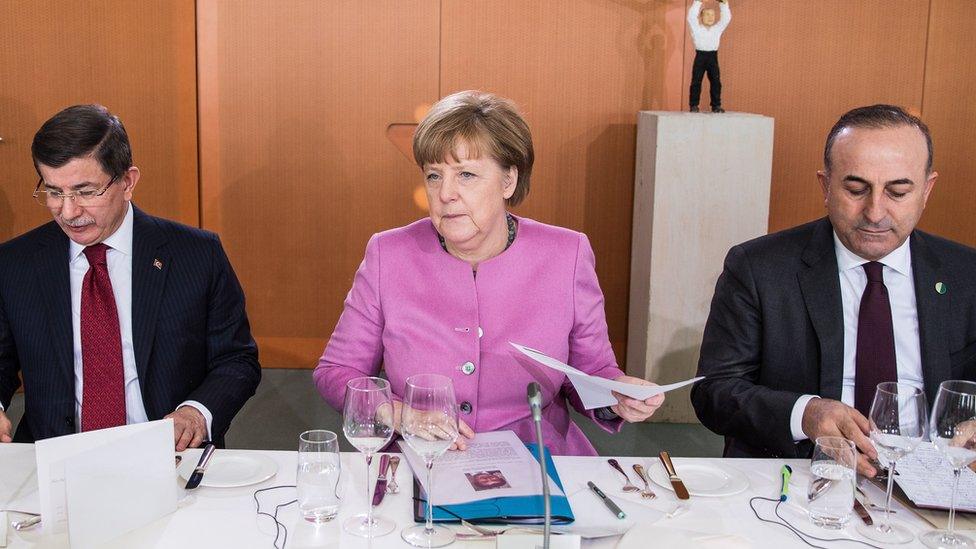Europe's leaders back in crisis mode over migration
- Published

German Chancellor Angela Merkel discussed the migrant crisis with the prime minister and foreign minister of Turkey
The winter holidays now behind them, Europe's leaders are in crisis mode over migration. Again.
It's not that anything really changed over the festive season. A steady stream of 2,000 refugees and others has continued to flow into Europe every day across the Mediterranean
Today there was a terrible reminder of the perils of that watery journey. The Greek coastguard reported dozens drowned, among them a number of children.
Is Germany's attitude to migrants changing?
Manuel Valls: Europe is in grave danger over migration crisis
How Finland is teaching migrants "how to behave"
Now back in their work suits, EU politicians are clearly feeling the heat of growing public disquiet and the realisation that spring, calmer seas and the likely arrival of hundreds of thousands more migrants are just around the corner.
So this has been a week of grand political statements which hog the headlines but actually change very little.
Manuel Valls, the French prime minister, said today that the very idea of Europe was endangered by migration, his Dutch counterpart Mark Rutte described this as a race against time, and on Wednesday Austria unilaterally declared a limit on the number of newcomers it would accept.
You'll notice it didn't say how that cap could be enforced. Austria's government is unlikely to use military might to turn asylum seekers away.
Germany's Chancellor Merkel prefers the idea of forming a EU coastguard to prevent migrants from entering Europe in the first place.
But once in European waters, boats laden with asylum seekers can't be turned back.
Their claims must be heard under international law.
So the only realistic chance of stopping millions more refugees and others flooding to Europe in the short term, lies in the Middle East.
Mrs Merkel continues to lobby Turkey to crack down on people smugglers. Her Finance Minister Wolfgang Schaeuble suggests a Marshall Plan for the region - aimed at pumping money into refugee camps, to improve living conditions there and, of course, an end to Syria's civil war would be decisive in calming Europe's migration crisis.
To a greater or lesser extent though all these are distant prospects.